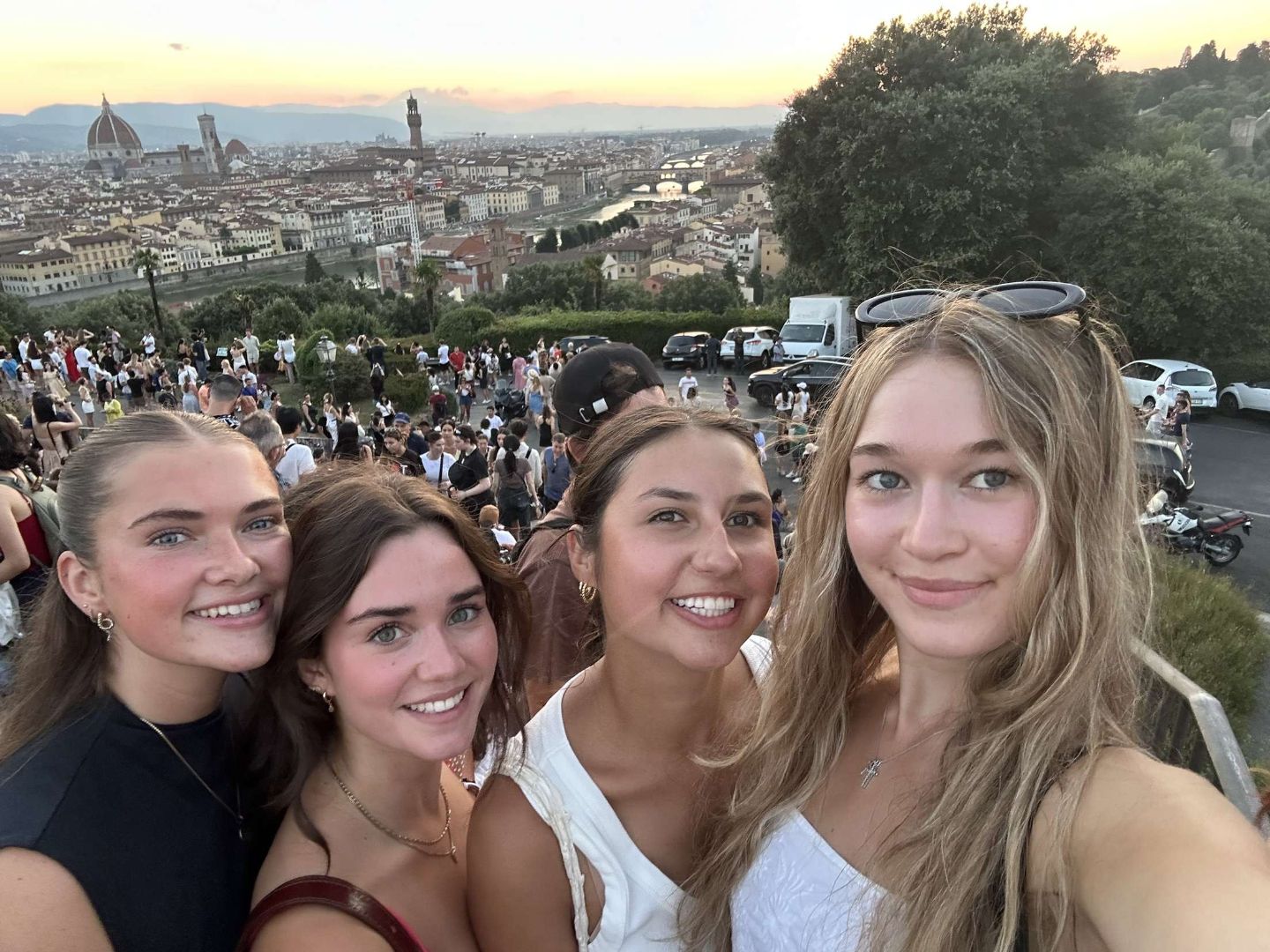
I plan on going into sustainable consulting and advising. Studying abroad in Rome helped broaden my international perspective of what it means to reuse materials. I’m specifically interested in sustainable waste disposal like composting and recycling. The way they reused the materials of old buildings for new ones was very different from the American perspective that “new is always better.” Rome also showed me the difficulties of waste disposal in an ancient city that wasn’t built for cars. The streets were narrowly built for pedestrians and did not allow for large trash or recycling trucks to travel through. Therefore, the smaller trash trucks were not large enough to service its many residents and added tourists. This issue had me brainstorming how to solve the build-up of trash accumulated on roads.
This experience improved my social ability to communicate with a variety of people and helped me become more independent. It also enhanced my problem-solving skills when plans changed quickly, and I was forced to adapt. This program also got me comfortable asking questions. Being in a different country, knowing how to handle transportation like trains and the subway is difficult. I was pushed out of my comfort zone and learned how to ask for help.
This experience taught me the importance of learning another language when you are traveling in a foreign country. Most people know English there; however, accents can make it difficult to understand what people are saying. It is important to take conversations slowly and have patience. People also loved it when we would make an effort to speak their language. Worldwide hand signals and pointing also came in handy.
I learned the importance of preserving history. In Rome, you would turn the corner and randomly be greeted by Ancient Rome in the middle of a neighborhood. I found it shocking that the government trusted people enough to give them access to one-of-a-kind historical artifacts. In the U.S. we tend to tear down the old and build brand new when buildings become old-fashioned. In Italy, people are still using buildings that are centuries of years old. Even my classroom building was attached to walls from the ancient Theater of Pompey.
Everybody talks about how studying abroad is actually a “party abroad.” I can say for my program that was not true. Because we were only there for three and a half weeks and were taking seven credits, our days were filled with class, guest lectures, tours, presentations, essays, cooking classes, and exams. The amount of work was manageable, but our days were often filled with different formats of learning. We had free time at night and on the weekends; however, the nightlife was not the only thing we experienced. It was a smaller portion of our program, with the majority of it being learning and sightseeing.
Name: Aleah Schmottlach
Status: Junior
Major: Environmental Science and Sustainability
Hometown: Wixom, Michigan
Program: Arts, Culture and Urban Sustainability in Rome